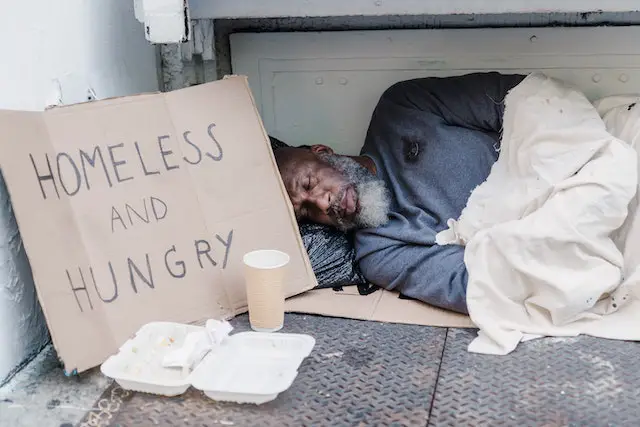Theme:
- The problem of income inequality has become more critical in recent times as the disparity between the wealthy and poor keeps growing. While technological developments have opened up new avenues for employment and industries, they have also caused the loss of many traditional jobs, leaving those with lower skills struggling to find well-paying jobs. In addition to technology, other factors such as tax policies, outsourcing, low minimum wages, and current events such as the Russia-Ukraine war, rising oil prices, and high inflation rates are also contributing to the problem of income inequality and poverty. Let us see what are the consequences of income inequality and poverty on society.
Economic consequences:
- Income inequality can lead to reduced consumer spending, which can slow economic growth.
- High poverty rates can lead to higher government spending on social programmes, which can increase the national debt and create budget deficits.
- Low-income individuals may have limited access to credit and may struggle to start businesses or invest in the stock market. This lack of access to credit and investment opportunities can further perpetuate income inequality, as those who are already wealthy have greater access to financial resources and can therefore accumulate even more wealth. Additionally, this can limit the potential for economic growth and innovation, as talented individuals from low-income backgrounds may not have the means to pursue their ideas and contribute to society.
- Poverty can create a poverty trap where individuals may lack the resources or skills to escape poverty.
Health consequences:
- Low-income individuals may have limited access to healthy food options, which can lead to malnutrition and higher rates of obesity and related health problems.
- High levels of stress and uncertainty associated with poverty can lead to higher rates of mental health issues.
- It is seen that low-income individuals are more susceptible to engaging in risky behaviours, such as substance abuse, which can lead to poorer health outcomes.
- Income inequality can contribute to higher rates of infant mortality and shorter life expectancy for low-income individuals due to reduced access to healthcare, healthy foods, and other resources necessary for good health. Studies have shown that in countries with higher levels of income inequality, life expectancy tends to be lower overall compared to countries with lower levels of income inequality.

Education consequences:
- Poverty can create barriers to accessing quality education, such as inadequate school resources or a lack of access to technology.
- Low-income families may struggle to provide the basic necessities required for education, such as school supplies or transportation.
- Students from low-income backgrounds may be more likely to drop out of school or have lower educational attainment levels.
- Poverty can lead to a repeating pattern of poverty that affects multiple generations. When parents have low levels of education and income, it can make it difficult for their children to have access to education and better job opportunities in the future. This can create a cycle of hardship where poverty is passed down from one generation to the next.
Social consequences:
- Income inequality can create social tensions and divisions between different socioeconomic groups. When income inequality is high, those with higher incomes may have more access to resources and opportunities, which can create resentment and tension between different groups.
- High poverty rates can lead to higher crime rates, as individuals who lack resources may turn to criminal activity to meet their needs. This can create a cycle of poverty and crime that harms communities and reduces social cohesion.
- People with low incomes and limited access to credit are particularly vulnerable to unexpected events like natural disasters and family health issues, which can result in homelessness and housing insecurity.
- In addition to this, income inequality can also contribute to a feeling of loss of identity and dignity. When people feel like their contributions to society are not valued, they can become hopeless and lose faith in institutions. This can be particularly problematic for those who are struggling to make ends meet or who feel that they are not able to contribute anything to society. When people lose their sense of identity and purpose, it can lead to a sense of hopelessness and despair that can further erode the social fabric of society.
Conclusion:
As we move towards building a fairer and more equitable society, addressing income inequality becomes a critical step in achieving this goal. Income inequality not only affects individuals and families but also has far-reaching consequences for the overall well-being of society. It can lead to reduced consumer spending, higher poverty rates, reduced access to quality education and healthcare, and even social tensions and divisions. Therefore, it is essential for policymakers to take proactive measures to address income inequality and work towards creating a society where everyone has equal opportunities and access to resources. By implementing policies that promote income equality, upward mobility, and social cohesion, we can create a brighter future for all and build a more just and equitable society.
Photo by Timur Weber
Your Turn…
What’s your take on this topic? Express your point of view through the comment section below. And subscribe to our blog to read answers to the trending GD topics.
Copyright @ Group Discussion Ideas.

